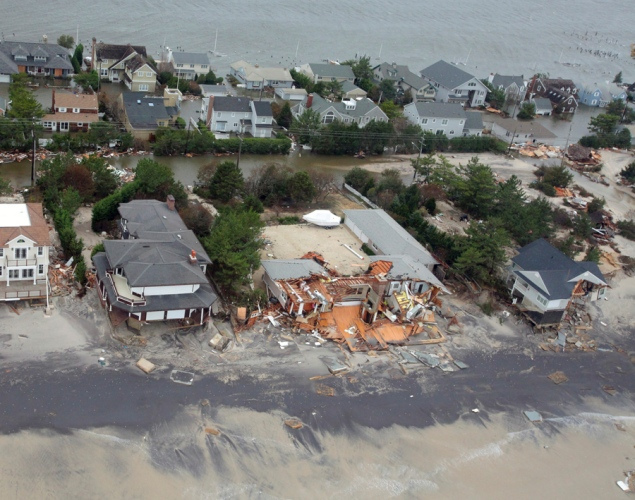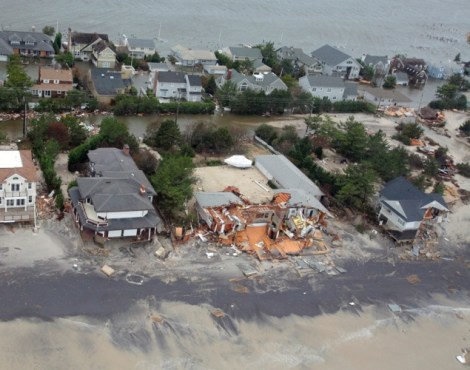Oh my God, some politicians are dicks.
The federal budget for 2013 is $3.8 trillion dollars — $3,800,000,000,000. Last week, President Obama requested that some $60.4 billion be used to help the Northeast recover from Sandy. $60.4 billion is a lot of money, but it’s a small percentage of what the government spends each year. It’s under six days worth of spending — going to rebuild infrastructure and restore the lives of those displaced by the storms.
But it’s also an opportunity for assholes to grandstand, and God forbid they should let such an opportunity pass. From Reuters:
Republican Senator Jon Kyl of Arizona said on Tuesday that Obama’s Sandy request was simply “too much.”
“At $60 billion? In this time when we’re trying to solve the deficit problem?” he told reporters.
The resistance could put the Sandy aid bill at risk of becoming a pawn in the tense negotiations over the year-end “fiscal cliff” of automatic tax hikes and spending cuts, although members of both parties have said it is essential for Congress to approve new disaster relief funds before the end of the year.
In 2010, Kyl’s home state of Arizona received $64.4 billion from the federal government without having neighborhoods wiped out by a storm. In this time when we’re trying to solve the deficit problem?!?
If you’re interested, you can see the full Senate appropriations request online. It’s a smorgasbord of requests — money to NOAA to replace damaged equipment, to the FBI for staff time, to the federal prisons — but a large amount goes to the U.S. Army Corps of Engineers to, among other things:
… reduce future flood risk in ways that will support the long-term sustainability of the coastal ecosystem and communities and reduce the economic costs and risks associated with large-scale flood and storm events in areas along the Atlantic Coast within the boundaries of the North Atlantic Division of the Corps that was affected by Hurricane Sandy.
This has been a key consideration since shortly after the storm hit: to what extent is damage from a future, similar catastrophe addressed? From an economic standpoint, investing now to prevent future catastrophes is the most important consideration.
Even the idea of how and where to rebuild is touchy. This morning, Housing and Urban Development Secretary Shaun Donovan — the former New York City housing commissioner — spoke about the prospect of rebuilding destroyed communities.
“I’ve seen in Cedar Rapids, Iowa, communities where the local community made the decision not to rebuild, to do buyouts, to allow people to move,” [Donovan] told reporters today following a speech at the Museum of Jewish Heritage in lower Manhattan. “Those are very, very hard decisions, but there are discussions going on right now in communities across the region about those.
“There will be some small share of communities, though, where it makes sense — and I would emphasize, very small share — where it may not make sense to rebuild at all.”
Statements like this are much easier said than acted upon. No community wants to be the one that isn’t rebuilt; every community will argue for its right to exist, no matter how at-risk it might be. Donovan is right, of course; shifts in the environment and rising sea levels require reassessment of where people live. (His former boss disagrees.)
Such pragmatism, however politically unpopular, reveals just how cynical posturing like Kyl’s is. The role of government in a situation like this is to determine how best to serve citizens and prepare for the future — not to leverage a crisis for political posturing.
The good news is that Kyl is leaving office in January. The bad news is that he’ll be replaced by Jeff Flake — one of 11 representatives to oppose funding relief efforts after Katrina.





